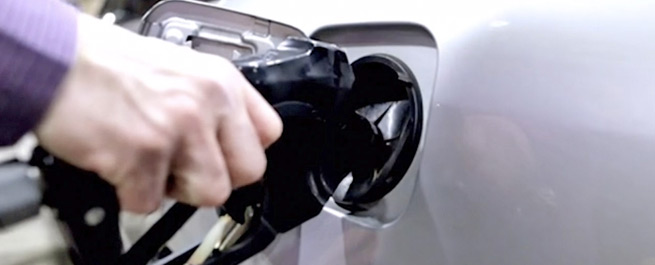Premium Vs Regular Gas – Which is best for your car?

Have you ever borrowed a friend’s car only to find out there’s no gas in it, and it only runs on premium? Many turbocharged cars and some naturally aspirated performance cars require only the good stuff, but what about using premium in your car even if the manufacturer doesn’t require it — are there any gains to be had? Could the better fuel result in increased mpg?
The answer is complicated. In most practical cases, it’s no, but, to fully understand why you’re better off buying regular, you’ve got to understand what makes premium gas premium and where exceptions to the rule make using premium the better choice.
Octane Ratings
The major differentiator between premium and regular fuel is its octane rating. Maybe you’ve heard references to “high-octane” and figured they had something to do with race cars, and that’s true, but Tony Stewart doesn’t buy gas for his NASCAR at the local 76. Even the highest-octane fuel you’ll get from a gas station is only a few points higher rated than regular.
Octane is a measure of how stable fuel is under compression. Higher-octane fuels can withstand higher pressure without combusting on their own, which is why you must use them in high-compression applications like sports cars.
The highest-octane premium fuel you can buy in the USA at normal gas stations is 93 octane. Regular grade typically runs at about 87 octane, so you’re only talking a difference of five points, and that’s outside of California where you’re stuck dealing with 91-octane premium.

When Octane Matters and When It Doesn’t
Modern cars are able to tell when you’re running premium gas and when you’re not. They do this using a sensor that can detect the octane rating of fuel in the tank.
Most cars are tuned from the factory to run on regular, so this sensor won’t tell the engine to make any changes to the fuel map to account for higher-performance fuel. That means putting premium in the tank won’t provide any additional power or economy.
High-performance cars that recommend the use of premium fuel can still run on lower-octane. The sensor tells the engine’s computer to use a less aggressive fuel and ignition map to ensure you don’t damage the engine. In testing a Ford EcoBoost Mustang, in which Ford recommends using premium only, the horsepower decrease was around 11 percent.
That means your typically 310 horsepower Mustang is making only 275 horses — still more than enough to get you to the grocery store and back. Maybe save your shillings and only pump premium if you’re really planning to open it up.
Being Regular Is OK
It seems that there’s almost no advantage to running premium unless you’re “all ate up with power,” in which case, you’d better stick to the high-octane stuff.
That’s not entirely true, many premium fuels do contain helpful additives that can enhance engine life, but you can accomplish the same with a good fuel system flush every once in a while. Use the money you save on the gas to pay for one.
Ultra-Premium to the Future!

You might have heard rumors that American fuel suppliers are beginning to ask for higher-grade fuels. While there’s no sign we will see them anytime soon, it is true that some automakers are investigating ways to unlock the efficiency potential of extremely high-quality fuels.
While there are definite benefits to such an approach — specifically very efficient cars and, potentially the opposite, extremely high-performance engines — only new-car owners with the technology to take advantage of such fuels would benefit. The majority of the road-going public would not be able to take advantage.
If you’re a member of that group, you’ve got no way of enjoying the new super gas. So, stick to regular.
The Bottom Line
There’s some very interesting chemistry going on in your engine, involving additives and octane ratings and knock sensors. If you’ve got to have the absolute maximum performance from your engine — or you plan on driving your car for all of 400,000 miles — there might be a few redeeming qualities in premium fuel to entice you to spend the extra money.
For the most part, you’re better served by buying regular and saving money, especially if you live in California.



















